1st International Workshop on Theory and Practice of Programmable Forwarding
Website: TaPoPF 2021
Monday, June 28, 2021
Opening
9:00am – 9:05am JST
Session Chair: Nate Foster, Cornell, United States and Akihiro Nakao, Tokyo University, Japan
Keynote 1
9:05am – 9:50am JST
Session Chair: Nate Foster, Cornell University, United States
Programmable Forwarding – Challenges, Pitfalls and Opportunities
Noa Zilberman, Oxford, United Kingdom
Description
Programmable network devices have transformed the way we think about networks and systems. The programmability provides infinite opportunities, and the ability to re-invent networking as we know it. Or maybe not? This talk will discuss the challenges and pitfalls in programmable forwarding through a set of projects and practical experiences. From hardware platforms, through verification to applications, it will shed light on the dark corners of programmable forwarding. With this knowledge, new opportunities arise for research and development of exciting new solutions.
Biography
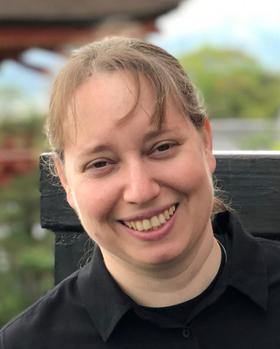 Noa Zilberman is an Associate Professor in Engineering Science, leading the Computing Infrastructure research group at the University of Oxford. Her research expertise is in programmable devices and networked-systems. Before moving to academia, she spent close to 15 years in industry, last as a Hardware Manager and Chip Architect at Broadcom.
Noa Zilberman is an Associate Professor in Engineering Science, leading the Computing Infrastructure research group at the University of Oxford. Her research expertise is in programmable devices and networked-systems. Before moving to academia, she spent close to 15 years in industry, last as a Hardware Manager and Chip Architect at Broadcom.
Technical Session
9:50am – 10:30am JST
Session Chair: Nate Foster, Cornell University, United States
In-network Applications: Beyond Single Switch Pipelines
Xin Zhe Khooi, NUS, Singapore
Levente Csikor, NUS, Singapore
Jialin Li, NUS, Singapore
Dinil Mon Divakaran, NUS, Singapore
Sketchy With a Chance of Adoption: Can Sketch-Based Telemetry Be Ready for Prime Time?
Zaoxing Liu, Boston University, United States
Hun Namkung, CMU, United States
Anup Agarwal, CMU, United States
Antonios Manousis, CMU, United States
Peter Steenkiste, CMU, United States
Srinivasan Seshan, CMU, United States
Vyas Sekar, CMU, United States
PS – Industrial Perspective
10:40am – 11:10am JST
Panel Moderator
Kentaro Ebisawa, Toyota, Japan
Panel Members
Hitoshi Kuwata, Apresia Systems, Japan
Ryuma Seno, NTT, Japan
Daniel Bernier, Bell, Canada
Description
Adoption of products and solutions based on “programmable forwarding” is taking off in real-life network services. While many things became possible with programmable forwarding, there are still challenges we need to solve to broaden the adoption. This panel will discuss network programmability from an industrial perspective.
Biography
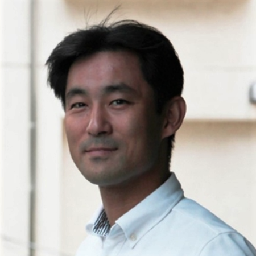 Since the early Internet age in 1998, Kentaro Ebisawa has been engaged in the verification of ADSL/FTTH/VPN and other newly arriving technologies and products, and in helping companies adopt these services. He has been responsible for network-related product design and development management at several foreign-owned startups, and using ASICs and FPGAs, developed IPv4/v6 translation devices as well as OpenFlow switches and Network OSes. At present, he conducts research and development on new protocols and implementation of mobile communication infrastructures and data analysis systems for connected cars, utilizing data plane programmability and in-network computing technologies.
Since the early Internet age in 1998, Kentaro Ebisawa has been engaged in the verification of ADSL/FTTH/VPN and other newly arriving technologies and products, and in helping companies adopt these services. He has been responsible for network-related product design and development management at several foreign-owned startups, and using ASICs and FPGAs, developed IPv4/v6 translation devices as well as OpenFlow switches and Network OSes. At present, he conducts research and development on new protocols and implementation of mobile communication infrastructures and data analysis systems for connected cars, utilizing data plane programmability and in-network computing technologies.
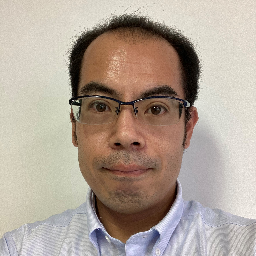 Since 2003, Hitoshi Kuwata has been involved in research and development of Ethernet switch for carrier, enterprise, data center and so on. Currently he is working on Open Networking activities such as white box switch, SONiC, P4 data plane programmability. He is a member of ‘P4 Users Japan’ (https://p4users.org/).
Since 2003, Hitoshi Kuwata has been involved in research and development of Ethernet switch for carrier, enterprise, data center and so on. Currently he is working on Open Networking activities such as white box switch, SONiC, P4 data plane programmability. He is a member of ‘P4 Users Japan’ (https://p4users.org/).
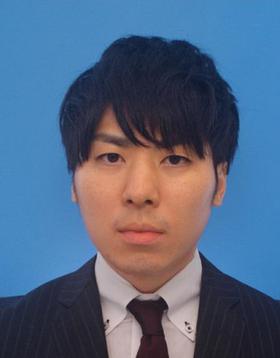 Ryuma Seno has experience in the research and development of transport protocols, data-plane programming, and mobile networks.
Ryuma Seno has experience in the research and development of transport protocols, data-plane programming, and mobile networks.
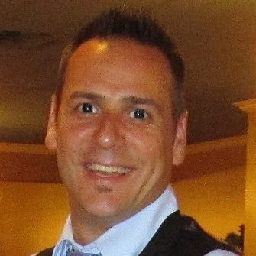 Daniel Bernier is a Technical Director in the Technology Strategy team at Bell Canada involved in research and development of disruptive technologies transforming the Telco space or Bell Canada’s network and services. He is currently working on the edge cloud strategy and cloud-native transformation leveraging optimized CP/UP separation and advances in network and hardware programming. He is involved in various open source community projects such as FD.io, CNCF CNF-WG, Network Service Mesh and P4. He is also a participating member at the IETF and BBF, co-authoring and collaborating on various drafts for SPRING based service-programming and SFC.
Daniel Bernier is a Technical Director in the Technology Strategy team at Bell Canada involved in research and development of disruptive technologies transforming the Telco space or Bell Canada’s network and services. He is currently working on the edge cloud strategy and cloud-native transformation leveraging optimized CP/UP separation and advances in network and hardware programming. He is involved in various open source community projects such as FD.io, CNCF CNF-WG, Network Service Mesh and P4. He is also a participating member at the IETF and BBF, co-authoring and collaborating on various drafts for SPRING based service-programming and SFC.
Keynote 2
11:10am – 11:55am JST
Session Chair: Akihiro Nakao, Tokyo University, Japan
Revisiting High-Speed Forwarding: Cases for State-full forwarding and Learned Index based Forwarding
Toru Hasegawa, Osaka University, Japan
Description
High-speed forwarding, i.e., high-speed longest prefix matching (LPM), was a well-studied research issue for connectionless networks like IP networks. However, high-speed forwarding is revisited due to the emergence of a new networking architecture like Named Data Networking (NDN) and a new search data structure like a learned index structure. This talk summarizes how research communities are addressing the two issues: The first issue is high speed state-full forwarding for multi-core software NDN routers. Since forwarding for NDN is different form that for traditional IP in terms of state-full forwarding and the lager number of prefixes, this make it difficult to use matching based on Ternary CAM (TCAM) devices. This talk presents our implementation of 100 Gbps NDN forwarding, which is based on prefetching and sharding, after summarizing the other studies on high speed NDN forwarding. A key issue is fast longest prefix matching (LPM) without using TCAM devices. The second issue is leveraging learned index structure for packet forwarding like LPM and load-balancing. The learned index structures are expected to achieve compact forwarding information base (FIB) data structures with high speed forwarding. Since applying learned index structures to packet forwarding is a preliminary research issue, the talk presents a few initial studies. Finally, the talk briefly discusses the future of the above techniques: how the techniques are leveraged for new programmable hardware switches like P4 switches.
Biography
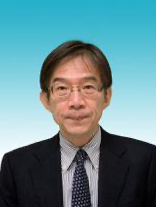
Toru Hasegawa received the B.E., the M.E. and Dr. Informatics degrees in information engineering from Kyoto University, Japan, in 1982, 1984 and 2000, respectively. After receiving the master degree, he worked as a research engineer at KDDI R&D labs.(former KDD R&D labs.) for 29 years and moved to Osaka University. He is a professor of Graduate school of Information and Science, Osaka University. His current interests are future Internet, Information Centric Networking, mobile computing and so on. He has published over 100 papers in peer-reviewed journals and international conference proceedings including MobiCom, ICNP, IEEE/ACM Transactions on Networking, Computer Networks. He has served on the program or organization committees of several networking conferences such as ICNP, P2P, ICN, CloudNet, ICC, Globecom etc, and as TPC co-chair of Testcom/Fates 2008, ICNP 2010, P2P 2011 and Global Internet Symposium 2014. He received the Meritorious Award on Radio of ARIB in2003, the best tutorial paper award in 2014 from IEICE, the best paper awards in 2015, 2018 and 2019 from IEICE and IPSJ Contribution Award from IPSJ in 2021. He is a fellow of IPSJ and IEICE.
Closing Session
11:55am – 12:00am JST
Session Chair: Nate Foster, Cornell, United States and Akihiro Nakao, Tokyo University, Japan











